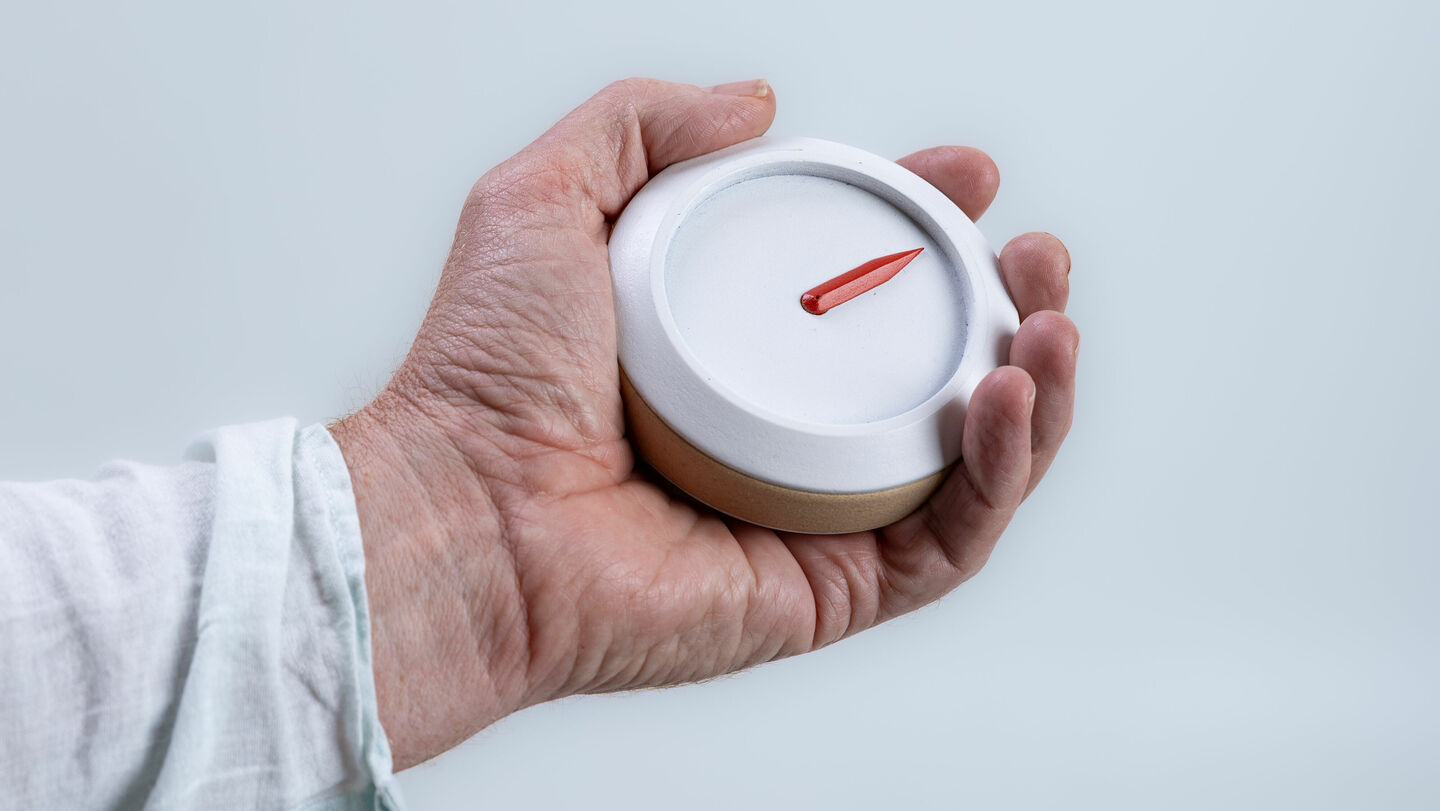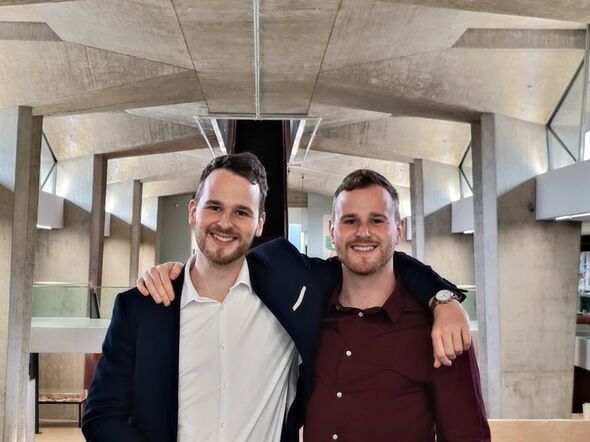
TU/e spin-off develops compass for people with dementia
Improving the quality of life for people with dementia, that’s what twin brothers and TU/e alumni Rick and Vincent Eurlings focus on with their company Aumens. Their first product, the Aumens Compass, was developed specifically so that people with dementia can always find their way home. “We want to give these people a little bit of their autonomy back,” says Rick Eurlings, co-founder of Aumens.
The Aumens Compass was nominated for this year’s National Care Innovation Award, which was presented on Wednesday. They didn’t walk away with the prize, but according to Eurlings, it’s a very positive thing just to be nominated. “A competition like this is super important in creating a network with healthcare institutions so they learn about the compass and can start offering it to their patients.” He emphasizes their focus is on the Aumens Compass for now, but they are already thinking about new concepts. “All with the goal of giving autonomy back to people with dementia.”
The idea for the compass wasn’t conceived by the twin brothers themselves. The credit for this goes to Rens Brankaert, who came up with the concept about ten years ago, while completing his PhD. He currently works as an assistant professor at Industrial Design and as a researcher at his own research group Expertise Center for Dementia & Technology. “At the time, Rens was inspired by his own grandfather, who had dementia and regularly lost his way,” says Rick Eurlings. He adds that Brankaert’s ambition lies primarily in research and teaching. “That’s why he was looking for a team that was eager to bring his invention to the market. My brother Vincent and I are busy doing that now.”
Intuitive compass
Using the Aumens Compass (see main photo) is easy and, above all, very intuitive. “The compass was developed together with the target group so that it’s immediately clear to the person with dementia what they need to do,” Eurlings explains. “With the push of a button you can set the location of someone’s front door and then the red pointer always points to that spot. It also includes a GPS tracker, so caregivers can see where someone is.”
According to Eurlings, the GPS tracker is intended primarily as a ‘safety net’. “For lack of a better alternative, caregivers sometimes use air tags, placing them in the pocket of the person with dementia, for example. But then you still miss some autonomy, because the responsibility lies with the caregiver who has to go find the person,” he explains. “The main function of the Aumens Compass is to empower people with dementia again, by giving them the tools to find their way back on their own.” The GPS tracker is primarily intended to reassure caregivers. “And just in case someone can’t find their way back after all, you have it as a backup.”
Forty percent of the people living at home with dementia don’t even get outside once a week on average
Almost never outside
According to the Aumens founder, so far it has almost never happened that people with dementia can’t find their way back with the compass. “We tested the product with the target group. Out of nearly forty participants, only two or three had trouble finding their way back,” he says. “It’s important to note that these were all people in advanced stages of dementia. For the participants with mild or mild dementia, the compass did exactly what it was supposed to do. Which is great, because that’s exactly the target group we’re focusing on right now.”
There’s a world to win in that group, he says. Three quarters of people with dementia still live at home with help from a home caregiver and/or loved ones. “Forty percent of this group don’t even get outside once a week on average, typically because they’re afraid of getting lost and there’s no one to accompany them.” With the Aumens Compass, the brothers hope to increase the independence of this group.
Going to market
According to Eurlings, the fact that the concept has been on the shelf for so long isn’t due to a lack of quality. He says it happens regularly that great concepts are left to gather dust because there’s no one to market them. “My brother and I completed a bachelor’s in Industrial Design (ID) at the same time. That’s how we got to know Rens Brankaert; he was our teacher at the time. We saw so many great designs that were shelved during our studies that after our bachelor’s we switched to a master’s at Industrial Engineering & Innovation Sciences (IE&IS), also here at TU/e. The reasoning being that ID is strong when it comes to design, and IE&IS when it comes to marketing products.”
Toward the end of their master’s, the Eurlings brothers bumped into Brankaert. “That was great timing,” says Eurlings, because at the time Brankaert was looking for people who were excited about the prospect of marketing promising designs, such as the compass. “He could’ve also done it himself, of course, but his real passions are research and teaching. So for us, this was a fantastic opportunity.”


Discussion